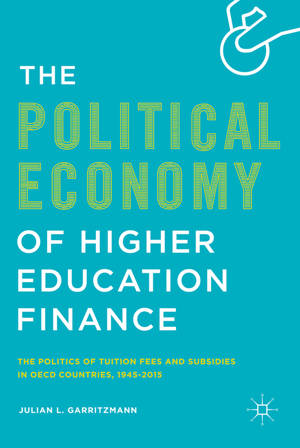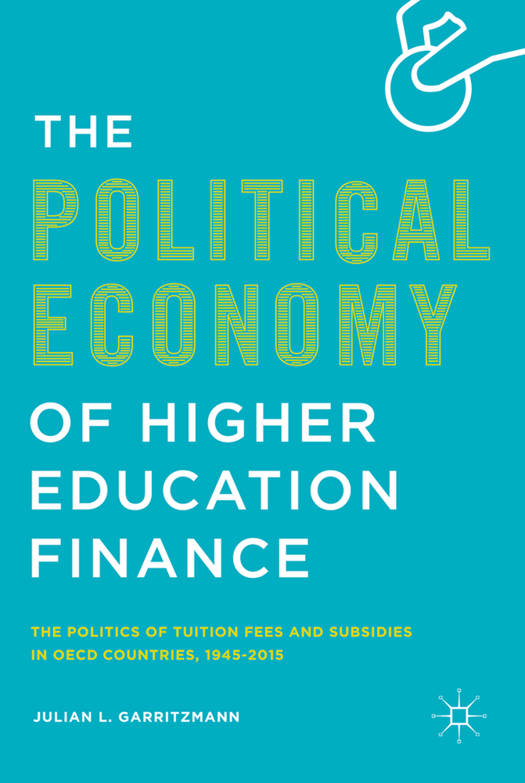
- Afhalen na 1 uur in een winkel met voorraad
- Gratis thuislevering in België vanaf € 30
- Ruim aanbod met 7 miljoen producten
- Afhalen na 1 uur in een winkel met voorraad
- Gratis thuislevering in België vanaf € 30
- Ruim aanbod met 7 miljoen producten
Zoeken
The Political Economy of Higher Education Finance
The Politics of Tuition Fees and Subsidies in OECD Countries,1945-2015
Julian L Garritzmann
Hardcover | Engels
€ 105,45
+ 210 punten
Uitvoering
Omschrijving
This book analyzes the political economy of higher education finance across a range of OECD countries, exploring why some students pay extortionate tuition fees whilst for others their education is free. What are the redistributional consequences of these different tuition-subsidy systems? Analysing the variety of existing systems, Garritzmann shows that across the advanced democracies "Four Worlds of Student Finance" exist. Historically, however, all countries' higher education systems looked very much alike in the 1940s. The book develops a theoretical model, the Time-Sensitive Partisan Theory, to explain why countries have evolved from a similar historical starting point to today's very distinct Four Worlds. The empirical analyses combine a wide variety of qualitative and quantitative evidence, studying higher education policies in all advanced democracies from 1945-2015.
Specificaties
Betrokkenen
- Auteur(s):
- Uitgeverij:
Inhoud
- Aantal bladzijden:
- 319
- Taal:
- Engels
Eigenschappen
- Productcode (EAN):
- 9783319299129
- Verschijningsdatum:
- 25/08/2016
- Uitvoering:
- Hardcover
- Formaat:
- Genaaid
- Afmetingen:
- 156 mm x 219 mm
- Gewicht:
- 530 g

Alleen bij Standaard Boekhandel
+ 210 punten op je klantenkaart van Standaard Boekhandel
Beoordelingen
We publiceren alleen reviews die voldoen aan de voorwaarden voor reviews. Bekijk onze voorwaarden voor reviews.











